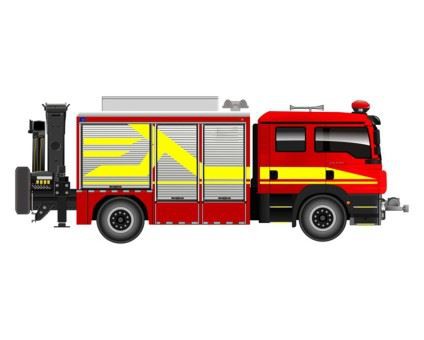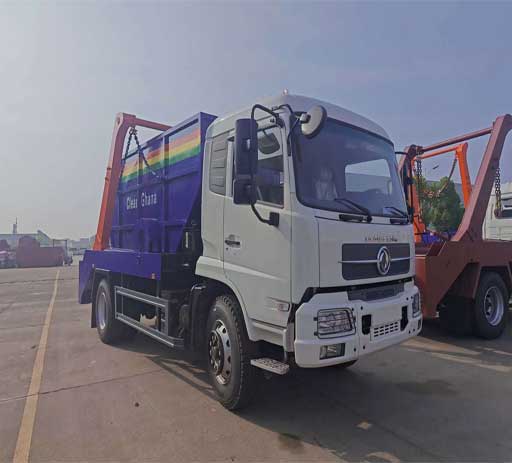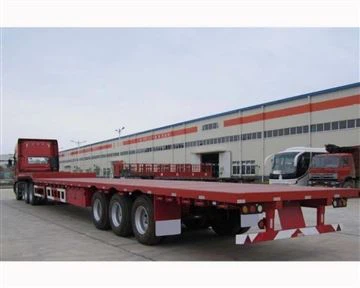Understanding the Five Ton Truck: A Comprehensive Guide

Introduction
The five ton truck is an essential vehicle in various industries, from transportation and logistics to construction and emergency services. It offers the perfect balance between load capacity and maneuverability, making it an ideal choice for businesses and individuals alike. In this article, we will explore everything you need to know about five ton trucks, including their specifications, uses, advantages, differences from other trucks, maintenance tips, and more. Whether you’re considering purchasing one or simply want to know more about this versatile vehicle, you’ll find valuable insights here.
What Is a Five Ton Truck?
A five ton truck is a vehicle designed to carry a maximum load of approximately five tons (about 11,000 pounds). These trucks come in various forms—whether they are flatbed, box, or pickup models—each suited for specific tasks. Thanks to their robust build and sizeable cargo space, five ton trucks are ideal for heavy-duty work in various sectors.
Basic Specifications
Understanding the basic specifications of a five ton truck can help in selecting the right model for your needs.
| Specification | Details |
|---|---|
| Payload Capacity | Up to 5 tons (11,000 lbs) |
| Engine Type | Diesel or gas |
| Wheelbase | Typically ranges from 120 to 170 inches |
| Length | Approximately 20 to 25 feet |
| Width | Usually about 7 to 8 feet |
| Height | Around 8 to 10 feet |
Types of Five Ton Trucks
There are several types of five ton trucks, each catering to specific needs and industries.
1. Flatbed Trucks
Flatbed trucks feature a flat, open cargo area that is perfect for transporting large and heavy loads, such as construction materials and machinery. These trucks are versatile and can be loaded from the sides, rear, or top.
2. Box Trucks
Box trucks, also known as cube vans or box vans, have an enclosed cargo area. They are excellent for transporting smaller items that require protection from the elements, making them popular among moving companies and delivery services.
3. Pickup Trucks
Five ton pickup trucks combine the characteristics of traditional pickups and heavier-duty trucks. They are versatile, offering both cargo space and the ability to tow trailers.
4. Dump Trucks
Dump trucks are specifically designed for transporting loose materials like gravel, sand, or dirt. Their ability to unload cargo by tilting the bed makes them invaluable in the construction and landscaping industries.
Common Uses of Five Ton Trucks
Due to their load capacity and durability, five ton trucks are utilized in various sectors and applications.
1. Transportation and Delivery
Many logistics companies rely on five ton trucks to deliver goods efficiently, striking a balance between size and fuel efficiency.
2. Construction
In the construction industry, five ton trucks are essential for transporting materials, tools, and workforce, ensuring that projects progress smoothly.
3. Emergency Services
Fire departments and emergency services often use five ton trucks to carry equipment, personnel, and even as mobile command units.
4. Landscaping
In landscaping, these trucks help transport plants, soil, and equipment, making it easier to arrange and maintain green spaces.
Advantages of Using a Five Ton Truck
There are several benefits to using a five ton truck over other vehicle types.
1. Versatile Load Capacity
Five ton trucks can handle various loads, making them flexible for multiple applications without requiring different vehicles.

2. Greater Maneuverability

Unlike larger trucks, five ton models offer better maneuverability, allowing drivers to navigate city streets and tight job sites more easily.
3. Fuel Efficiency
While still offering significant load capacity, five ton trucks typically consume less fuel compared to larger heavy-duty trucks, leading to cost savings.
4. Cost-Effectiveness
They are often more affordable than larger trucks, both in terms of purchase price and ongoing maintenance costs.
Differences Between Five Ton Trucks and Other Trucks
While five ton trucks cater to various needs, it’s essential to understand how they differ from other types of vehicles.
1. Comparison with One Ton Trucks
One ton trucks typically have a lower payload capacity and are designed for lighter loads. They are better suited for personal use or small businesses that don’t need to transport heavy materials.
2. Comparison with Ten Ton Trucks
Ten ton trucks can carry larger loads but are often less fuel efficient and more challenging to handle in urban environments.
3. Comparison with Box Trucks
While both can be used for cargo transport, box trucks often provide enclosed storage, which is better for delicate items or long-distance deliveries.
Practical Tips for Operating a Five Ton Truck
When operating a five ton truck, following best practices is crucial for safety and efficiency.
1. Regular Maintenance Checks
Perform routine maintenance checks on oil, brakes, tires, and lights to ensure the truck operates safely and efficiently.
2. Weight Distribution
Always ensure even weight distribution to prevent load shifts that can lead to accidents.
3. Keep a Safe Distance
Maintain a safe distance from other vehicles, especially when loaded, to allow for longer stopping distances.
4. Use Mirrors Effectively
Understanding blind spots and using mirrors effectively can help avoid accidents during turns and lane changes.
Maintenance Tips for Five Ton Trucks
Proper maintenance can prolong the life of your five ton truck and reduce the risk of breakdowns.
1. Engine Care
Change oil regularly and keep the engine clean to improve efficiency and performance.
2. Tire Maintenance
Check tire pressure frequently and replace worn tires to maintain traction and safety.
3. Brake System Checks
Inspect brake pads and fluids regularly to ensure safety and stopping power.
4. Fluid Levels
Monitor and refill fluids (coolant, transmission fluid, etc.) to prevent engine issues linked to overheating or poor lubrication.

Frequently Asked Questions (FAQ)
1. What is the maximum weight a five ton truck can carry?
The maximum load capacity of a five ton truck is approximately five tons or 11,000 pounds.
2. Are five ton trucks suitable for everyday use?
Yes, five ton trucks can be used for everyday purposes, but their size may not always be practical for urban settings.
3. What types of fuel do five ton trucks use?
Five ton trucks may run on either diesel or gasoline, depending on the specific model and manufacturer.
4. How do I choose the right five ton truck for my needs?
Consider factors like load capacity requirements, body type (flatbed, box, etc.), fuel type, and intended uses when selecting a truck.
5. Can I tow with a five ton truck?
Yes, many five ton trucks are equipped with towing capabilities, making them suitable for trailer transport or carrying additional loads.
